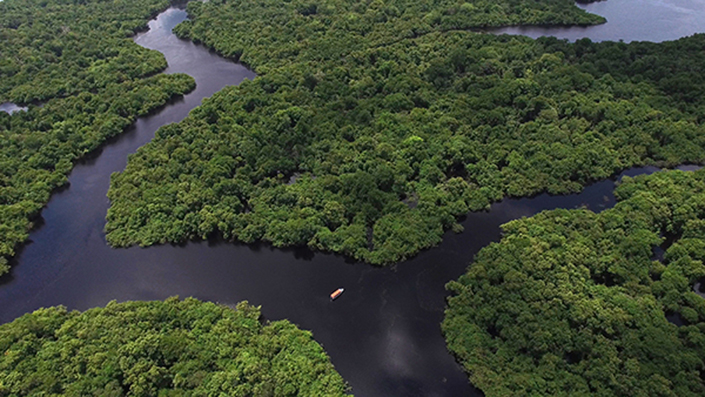Hydropower projects are destroying three mighty rivers, new study says

Image: College of Agriculture and Life Sciences
A group of 40 international scientists led by a College of Agriculture and Life Sciences professor says three of the earth’s mightiest rivers are being ravaged in the name of progress.
The findings of Kirk Winemiller, Regents Professor in the Department of Wildlife and Fisheries Sciences as well as a Texas A&M AgriLife Research fisheries scientist in College Station, and his colleagues were released in the scientific journal Science.
“The article summarizes the negative impacts of hydroelectric development on the incredible fish diversity and ecosystems of tropical rivers,” Winemiller said. “We wrote the paper to bring global attention to this problem, partly in hopes of stimulating research on tropical rivers, and partly to stimulate better approaches for hydropower development that balance true costs and benefits in the context of cumulative impacts.”
The hope, Winemiller said, is that the exposure afforded by publication in Science will boost dialogue among scientists, policymakers and stakeholders globally and stimulate policy reforms to save rivers from major and permanent ecological ruin.
The Amazon, Congo and Mekong rivers, the three targeted by the study, hold roughly one-third of the world’s freshwater fish species, many of which are found nowhere but their respective river basins, Winemiller said.
The three rivers all have limited hydropower dams in place for creating electricity for their areas’ growing economies, and, until recently, were only exploited to a limited degree due to the previously sparse energy demand, he said.
“Most of the existing dams are relatively small and located in upland tributaries, not on the main rivers,” Winemiller said. “But now, over 450 additional dams are planned for these three rivers with many already under construction. Major dams are usually built where rapids and waterfalls boost the hydropower potential; the same sites where many unique fishes adapted to life in fast water are found.”
Winemiller said the Amazon River has 2,300 known species of fish or 16 percent of the world’s known freshwater fish, with more being discovered each year. The Congo Basin ranks second with 1,000 fish species followed by the Mekong with at least 850 recognized freshwater fish.

